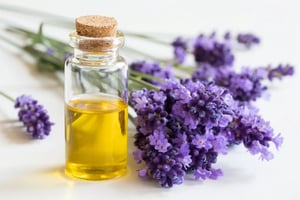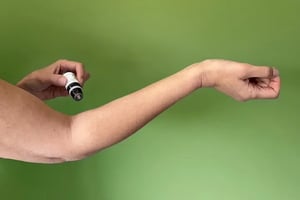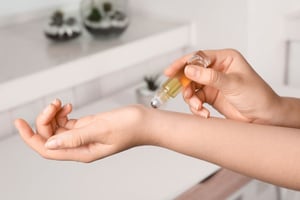Detecting counterfeit essential oils: technical guide
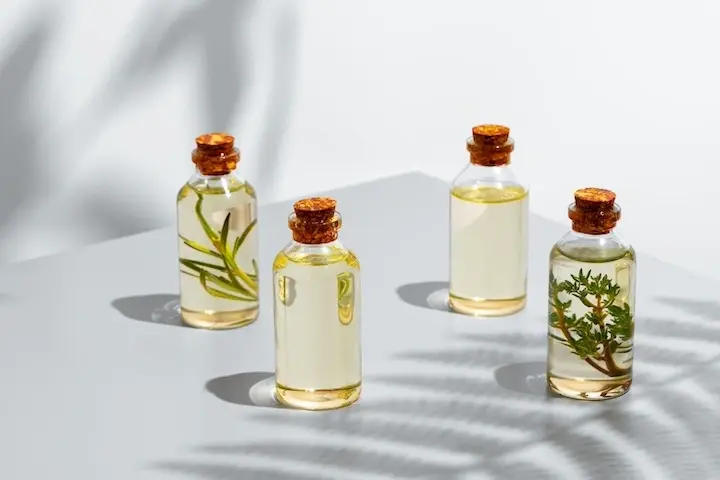
March 04, 2024
Essential oils: how to avoid counterfeiting (tips and tricks)
Counterfeiting of medicines and healthcare products is a growing problem in Europe. According to Europol, the trade in counterfeit medicines has increased by 13% in 2022 compared to 2021.
As a French specialist in the online sale of 100% natural, pure and authentic essential oils direct from the producer, Landema.com is concerned by the growing number of counterfeit products and the danger they pose to consumers.
This article aims to warn you and give you all the keys to spotting counterfeits.
Why talk about counterfeiting in the field of health and essential oils?
The Covid-19 crisis has highlighted the scale of the medical counterfeit market, with its colossal financial stakes. While counterfeiting traditionally involves intellectual property rights, a more insidious form, known as "regulatory" counterfeiting, now targets the very characteristics of pharmaceutical products, with a direct impact on consumer health.
Essential oils, used for their therapeutic virtues and fragrances, as well as for their use in our homes, are no exception to this phenomenon. Counterfeit products can involve the addition of synthetic substances, dilution with inferior quality oils, or even products bearing a misleading geographical origin.
The juicy business of counterfeit essential oils
According to a Skyquest report (see source at the end of this article), the essential oils sector will represent a $20 billion global market by 2021, making it a prime target for counterfeiters.
Attracted by the lucrative growth of this market, illegal networks exploit mass production and online sales to sell counterfeit products at low cost, ensuring them substantial profits. These practices not only threaten consumer health, but also undermine confidence in the authenticity and quality of essential oils.

The little-known dangers of counterfeit essential oils
Counterfeit essential oils go beyond mere ineffectiveness and represent a real health risk. These products may contain substances that provoke allergies and irritations, excessive concentrations of active molecules that can lead to overdosing, or microbiological contaminants.
Here's what they may contain:
● Allergenic or irritant substances: added components likely to trigger allergic reactions or skin irritations.
● Concentrations that are too high: an increased risk of overdosing on active molecules with potentially toxic effects for the body.
● Adulteration and adulteration: the addition of chemicals or dilution with inferior oils compromises product efficacy and safety.
To find out more about commonly used adulteration techniques, read our article on adulteration.
● Microbiological contaminants: the presence of bacteria or molds can lead to infections or health complications.
These elements can trigger acute skin reactions, disrupt the digestive or neurological systems, and in extreme situations, cause kidney damage. Recognizing these threats is crucial to avoiding serious health consequences.
Contrary to popular belief, counterfeit essential oils are not simply ineffective. They can actually be dangerous to your health!
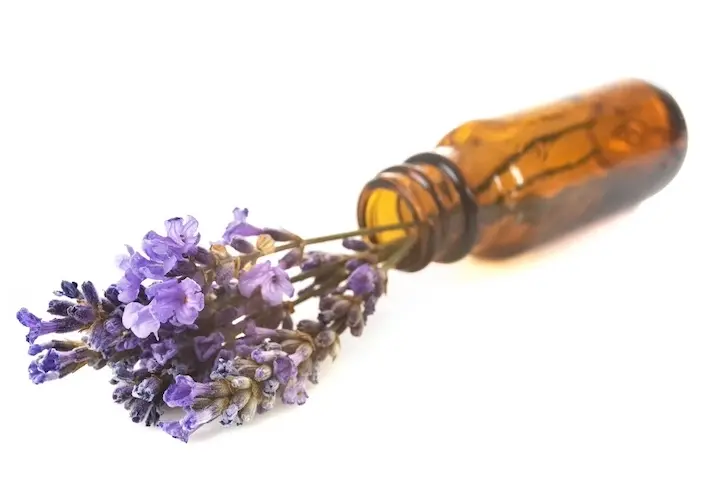
How to recognize a counterfeit essential oil
● Check labeling and packaging: counterfeit products can often be identified by their poor-quality labeling. Look for spelling mistakes, errors in the Latin name of the plant, or poor-quality printing.
● Examine appearance and smell: genuine essential oils have a characteristic smell and a clear appearance. Be wary of products whose scent seems artificial or overly chemical.
● Beware of abnormally low prices: a price significantly lower than the market price may indicate a counterfeit. Quality essential oils have high production and testing costs.
Signs of a genuine essential oil
To recognize a genuine essential oil, there are a number of clues that can guide you:
● Quality criteria: several criteria influence the quality of an essential oil, and they must be clearly explained so that you can make an informed choice. The method of cultivation (wild, organic, conventional), the precise botanical species of the plants, the harvesting method, the region of origin... all play a crucial role in the final quality of an essential oil, as does the know-how of the producer. It's crucial to choose an essential oil that's 100% natural, pure and authentic.
To find out more, read the blog post on What makes the quality of an essential oil

● Quality labels: look for certifications and labels such as Agriculture Biologique (AB), ISO or Appellations d'Origine Protégée (AOP - for fine lavender, for example) that attest to quality and origin.
● Certificates of analysis available: a reliable supplier presents certificates of analysis guaranteeing the purity and exact composition of the essential oil.
● Traceability and transparency on plant origin: serious brands provide precise information on plant provenance and cultivation methods, ensuring full product traceability.
Don't hesitate to create your account on the landema.com website for easy access to certificates and regulatory documents for each essential oil.
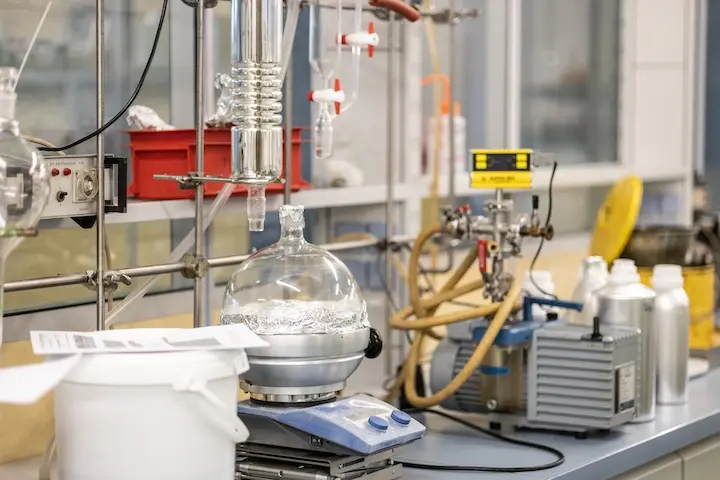
Landema - Groupe Biolandes
How to avoid buying scams?
● Buy only in specialized stores (physical or online): these outlets guarantee a rigorous selection of products.
We've written a comprehensive Guide to buying essential oils online : you'll find plenty of advice on how to buy online with confidence.
● Beware of tempting online promotions: many online offers are too good to be true and often hide inferior products.
● Focus on well-known, reputable suppliers: choose established brands with positive consumer reviews. Landema is one of these: a subsidiary of the French Biolandes group, established in the Landes region since 1980, we specialize in the online sale of essential oils and plant extracts direct from the producer, whose origin and quality we guarantee.
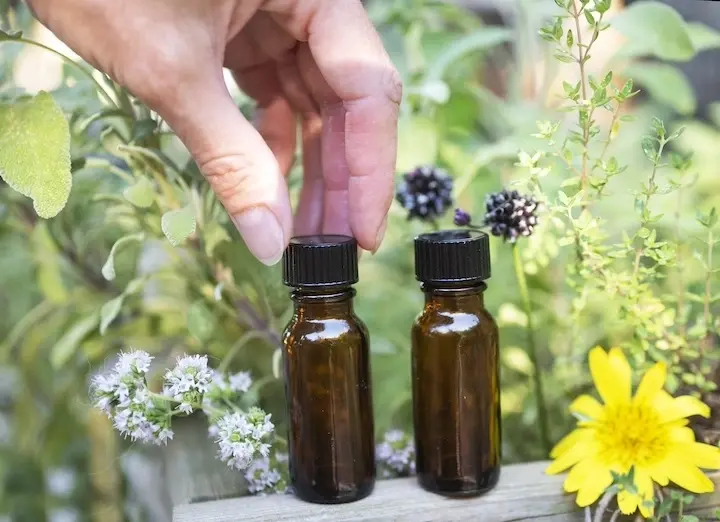
7 tips for spotting counterfeits
The fight against counterfeit essential oils is crucial to protecting your health. As a consumer, you have the power to make informed choices by being informed and vigilant.
By following our 7 sure-fire tips, you'll be able to spot counterfeit products for sure. Here's a checklist to help you with your purchases:
- Check packaging: Beware of vague labelling, spelling mistakes or poor-quality printing.
- Compare smells: a strange or overly chemical odor can betray a counterfeit. Compare with a genuine essential oil.
- Avoid low prices : if the price seems too attractive, it's probably a scam. A quality essential oil has a high cost price.
- Demand certificates of analysis: serious producers provide these documents attesting to the real composition of their oils.
- Check labels: use quality labels such as Agriculture Biologique or AOP.
- Only order from specialized stores (physical or online): essential oils are carefully selected and advice is given by trained professionals.
- Beware of tempting Internet promotions: many shady sites lure you in with very low prices.
Counterfeit essential oils represent unsuspected dangers, especially for daily or long-term use. So be extremely careful when buying them, by following our advice and choosing reputable suppliers like Landema.com.
At Landema, we're committed to providing you not only with the highest quality products, but also with all the information you need to help you identify genuine products. Together, let's protect our health and preserve the authenticity of nature's treasures.
Source cited: Skyquest Report
To find out more about counterfeit medicines and essential oils in Europe, please refer to these sources:

